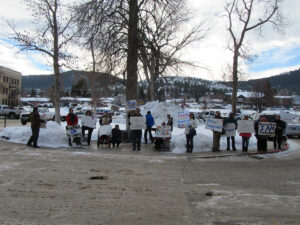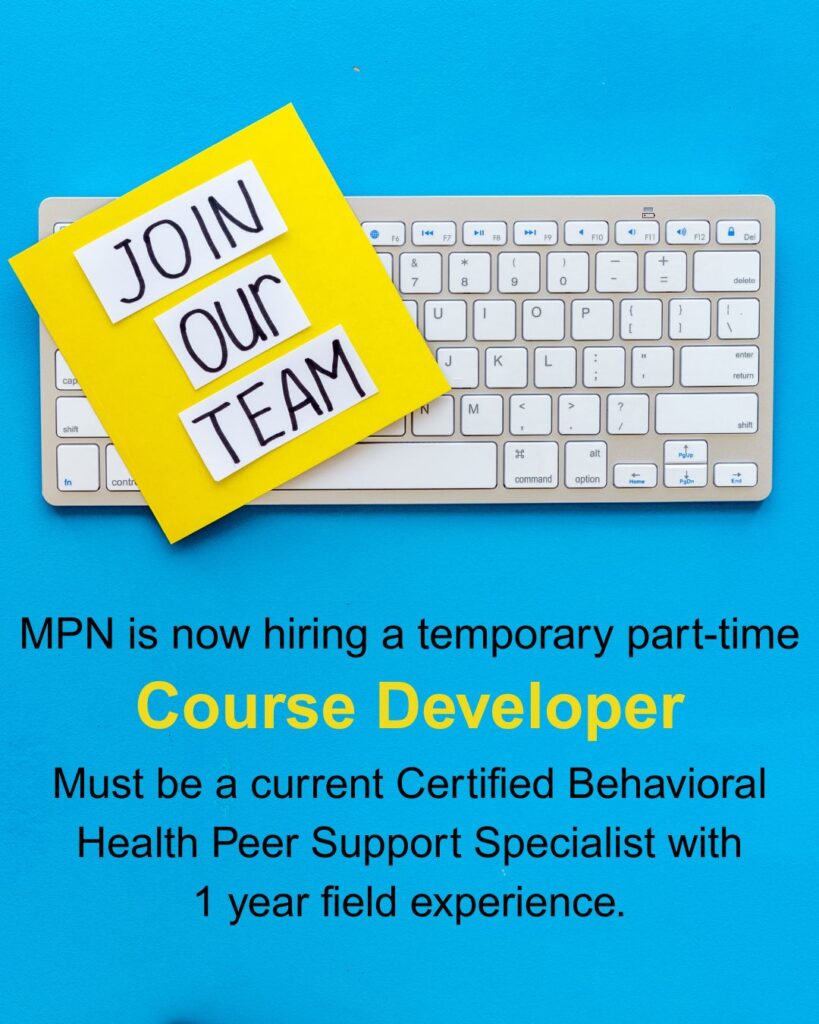We are a network of individuals who are on the path of recovery.
We identify as being in recovery from mental health, substance abuse and or addiction struggles. Together we share information, provide peer support, advocate with a united voice and improve the system. We come from places all across Montana, with different stories and experiences but together we make a difference. This is the Recovery Movement in Montana.



Realizing Recovery Blog
Culture in Recovery
There are many forms of culture that we can address when it comes to recovery. Over the years it has been a piece of my professional development that I have had to work on. I think for me I needed to understand my own culture to be able to recognize and appreciate other forms of culture.
Growing Through the Seasons of Change
As I am walking down the sidewalk, crisp leaves crunch beneath my feet and I cannot help but think about when I was a little girl, and my uncle would rake all the leaves into a big pile for us to jump in. My innocent years before I understood what my little life could become.
Seasonal Changes
It’s the season of changes. During this time of the year, we can have a mixture of emotions that we are feeling, dealing, and coping with. Everyone in recovery has their own story and I know for me, mine involves a lot of good times, amazing times, and a lot of traumatic times too.
Seasonal Change
Seasonal change definitely has its effects on me. Initially it seems to have a positive effect. I get excited when the season changes from summer to fall and then from fall to winter. I love that my environment in my home changes as we decorate for Halloween and Thanksgiving and then again for Christmas. It’s a tangible signal that the holidays are coming. I look forward to togetherness, corn mazes, pumpkin carving, all the colors of the autumn leaves. I’m wrapped up in the love and magic of Christmas, the kindness of giving, to cozy inside and beautiful snow and lights outside. There are so many things that fill me up!
There are also plenty of things that can be overwhelming and anxiety producing during the holidays. I have a panic disorder and I struggle with depression. I have spent some time figuring out my anxiety triggers and working with my therapist to develop strategies and building coping skills to better navigate the extreme stress and anxiety that the holidays can bring for me. But its after the holidays that I really feel the effects of seasonal change. I kind of sink into this depression after my fancy holiday anxiety goes away. Its dark and cold all the time. I dont want to go and do anything. I just want to sit at home, wrapped in a blanket, and do nothing. The longer I do nothing, the more depressed I get. Now that Im working from home, I could see this get bad rather quickly. So, I make a plan with people Im accountable to. I make commitments to activities with people that require me to get dressed and leave the house for a couple of hours at least a couple times a week.
My family’s commitment to playing sports gets me out of the house for practices and games every other season of the year, but winter sports have not yet been a thing in my household. So, we will make plans with friends, do date nights and family fun nights. Its important for me to do things that require me to be somewhat active while Im out, such as bowling or axe throwing. I need to have activities that are fun and build relationships, like game nights with our friends. I need to make sure that eating and food isnt the main focus of all my outside commitments. I need to spend some time outside when the sun is out, sledding, having snowball fights, or just walking. Last, but not least, I need to honestly check in with myself and my family, at least every couple of weeks. How am I actually feeling? Is my partner noticing signs and symptoms Im unaware of? Its part of my plan to reach out for help if the activities in my plan are not helping. I have discovered that professional help is necessary sometimes and can be life-changing. I am willing to do the work I can to improve my quality of life, and ask for help when my mental health is suffering. If you struggle with seasonal change, you may benefit from developing skills and strategies of your own. And if youre struggling with your mental health, please dont be afraid to reach out and ask for help.
Managing Seasonal Change
Seasonal changes are an interesting topic for me to write about. Starting my recovery journey in the Great Northwest you would think that I would have lots to say about the topic. I remember while I was going through mental health treatment lots of my peers talked about how the seasonal changes really affected their mental health.
What Recovery Means to Me
The meaning of recovery to me has evolved over the years as I have evolved. I remember sitting in county jail thinking, “If I can just not get high, get a job somewhere doing anything, and an apartment, that will be enough for me.” My expectations of myself and what life could look like were low. Honestly, if I would have achieved only that, it still would have been recovery, it still would have been a significantly better life than when I was at my lowest.
The Art of Recovery
Recovery allows me to reframe the artwork that is my life. My addiction took that piece of artwork and buried it in the basement of my soul. Through the years, I piled boxes of trauma over the top of it, it gathered dust and lost all its value.
Recovery is Life
Recovery is the beginning of positive change and evolving into the spirit and human being an individual was meant to be. Its the bond and balance of body, mind, and soul. It is the discovery of who Creator really made an individual to be.
Relationships in Recovery
I believe that relationships are what gives each of our lives purpose. The connection that each of us have with the people in our lives is what gives us the ability have the emotions that we get to experience. I also believe that we get to have a relationship with ourselves.
Advocacy
Check out our new page dedicated to tracking state and federal bills, executive orders, and lawsuits.
 Standing up for what we believe is right, having a voice, making choices in recovery, and sharing our own recovery story are some of the things that make up advocacy and self-advocacy.
Standing up for what we believe is right, having a voice, making choices in recovery, and sharing our own recovery story are some of the things that make up advocacy and self-advocacy.
Let’s start with self-advocacy which refers to an individual’s ability to effectively communicate, convey, negotiate, or assert his/her own interests, desires, needs, or rights. It involves making informed decisions and taking responsibility for those decisions (Van Reusen et al., 1994).
Knowing yourself and your strengths, needs, and interests is the first step toward advocating for your rights. Once we begin to find our way on the path of recovery, we may want to begin to advocate for ourselves with those around us—peer supporters, friends, family, service providers, and doctors. These conversations may be difficult, but having them is vital to your recovery. Remember, you are the expert on yourself.
It may be that prior to getting on the path to recovery, others were making decisions for you or acting in what they believed to be your best interest. Now may be the time for you to let others know what you believe to be in your best interest. You may find yourself in the process of taking control and making decisions affecting your life and perhaps others’ lives. This process of self-determination means making informed choices, problem solving, setting and attaining goals—essentially being a self-advocate.
Advocacy or advocating for others may be something you are interested in doing. Advocating for another person isn’t about acting in a person’s perceived best interest, but it is standing with a person to ensure they are able to articulate and obtain what they want or need. Perhaps you may consider speaking up and advocating for various changes in the services in your community.
Here are a few examples of advocacy:
- Speak to your legislature or a special committee.
- Get involved with an advocacy group or organization.
- Share your recovery story to support others in recovery.
- Whether advocating for yourself, for others, for your community, or as part of an organization, advocacy is very self-empowering. You can make a real difference in your life, the lives of others, and even the community.
- Reach out to Montana’s Peer Network and share your recovery story on one of our “Recovery Talks” podcasts.
Advancing Advocacy Blog
Bullying Among Children with Special Needs
Bullying remains one of the most persistent issues affecting children and adolescents, often leading to devastating consequences. Among the most vulnerable populations are children with special healthcare needs and mental health conditions. These children are disproportionately targeted due to their perceived differences, and they frequently lack the resources or support systems to defend themselves or seek help.
Dignity Over Detention
President Trump’s “Ending Crime and Disorder on American’s Streets” executive order from July 24, 2025 is chilling. Under the guise of “law and order” this administration seems to be targeting the most vulnerable populations. This time it is unhoused people but the implications for a wider group of people are obvious. Do we have an issue with people being unable to find and keep adequate housing in this country? Yes, we cannot deny that is a rising problem. There is a misconception that being unhoused is due to laziness, weakness, or a moral failing when it is actually a lack of adequate employment and extremely limited access to affordable housing that are the main causes of homelessness. The Supreme Court’s Grants Pass ruling opened the door to more criminalization by local authorities. Criminalizing homelessness and closing housing programs does not eliminate the issues that cause homelessness in the first place. We can look at least one community in our own state whose elected officials have blamed services for unhoused people as attracting unhoused people to the community and if those services were eliminated, that problem would go away. They even went as far as removing bus stops and requiring people to access public transit through a phone app and credit card.




